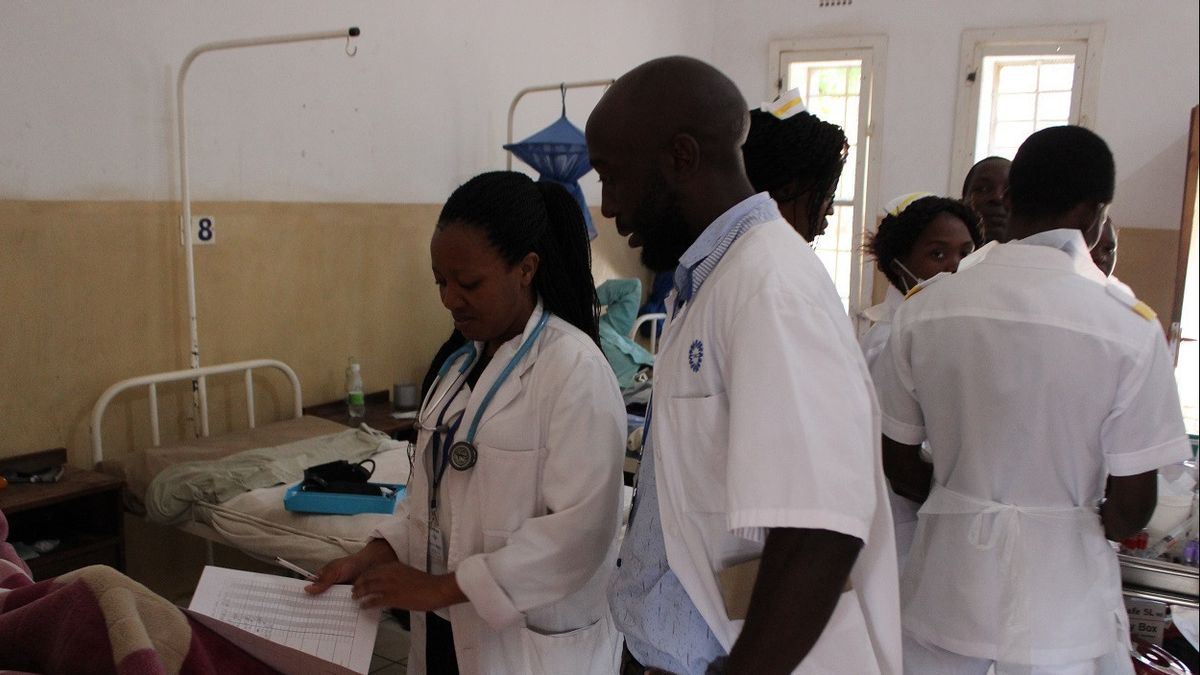JAKARTA - The World Health Organization (WHO) is concerned that the exodus of health workers from poor countries to rich countries continues to increase, while trying to support the loss of their staff due to the COVID-19 pandemic, sometimes through active recruitment.
The trend of nurses and other staff to leave parts of Africa or Southeast Asia, to get better opportunities in richer countries in the Middle East or Europe had already taken place before the pandemic. However, it has increased since the pandemic occurred, the UN health agency said, as global competition is heating up.
"Health workers are the backbone of every health system. However, 55 countries with some of the most fragile health systems in the world do not have enough health workers, many have lost their health workers due to international migration," said WHO Director General Dr. Tedros Adhanom Ghebreyesus, as reported by Reuters on March 15.
Dr. Tedros refers to a new WHO list of vulnerable countries, where there are eight additional countries since they were last published in 2020. These countries are Comoro, Rwanda, Zambia, Zimbabwe, Timor Leste, Laos,tengas and Vanuatu.
Meanwhile Jim Campbell, director of the WHO's health workforce department, told reporters the protection for countries on the WHO list is critical, "so they can continue to rebuild and recover from the pandemic without losing workers due to migration".
About 115,000 health workers died from COVID worldwide during the pandemic, but many more have left their professions due to fatigue and depression, he said.
As a sign of fatigue among health workers, protests and strikes have been organized in more than 100 countries since the pandemic began, he added, including in the UK and the United States.
"We need to protect the workforce, if we want to ensure that residents have access to treatment," Campbell said.
When asked which countries attract more workers, he said OECD countries (Organization for Economic Co-operation and Development) and Gulf countries, but added that competition between African countries is also getting tighter.
The OECD itself consists of 38 countries, including Australia, Austria, Belgium, Canada, Chile, Colombia, Costa Rica, Czech Republic, Denmark, Estonia, Finland, France, Germany, Greece, Hungary, Iceland, Ireland, Israel, Italy, Japan, South Korea, Latvia, Lithuania, Luxembourg, Mexico, the Netherlands, New Zealand, Norway, Poland, Portugal, Slovakia, Slovenia, Spain, Sweden, Switzerland, Turkey, Britain and the United States.
WHO says they are not against worker migration if managed properly. In 2010, WHO issued a voluntary global code of practice regarding the recruitment of international health workers, urging its members to follow suit.
The English, Chinese, Japanese, Arabic, and French versions are automatically generated by the AI. So there may still be inaccuracies in translating, please always see Indonesian as our main language. (system supported by DigitalSiber.id)













